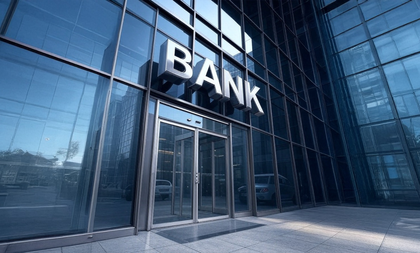GST reforms: Banks expect increased credit demand across retail, MSME, agri segments
By IANS | Updated: September 6, 2025 14:40 IST2025-09-06T14:39:46+5:302025-09-06T14:40:06+5:30
New Delhi, Sep 6 With the Goods and Services Tax (GST) reforms, banks expect increased credit demand across ...

GST reforms: Banks expect increased credit demand across retail, MSME, agri segments
New Delhi, Sep 6 With the Goods and Services Tax (GST) reforms, banks expect increased credit demand across retail, MSME, and agricultural segments as incomes rise and business investment picks up.
According to Ajay Kumar Srivastava, MD and CEO, Indian Overseas Bank, the reform will create a strong effect across the economy, leading to improved cashflows for distributors and retailers, greater working capital access for small businesses, and expanded credit requirements amid rising demand.
“Overall, this decision acts as a catalyst for inclusive growth and economic transformation aligning itself to India’s vision of Viksit Bharat”, said Srivastava.
This move makes taxation more transparent and easier to follow.
“We expect these measures will drive an estimated growth in consumption over 8-10 per cent in the next two quarters in rural markets, particularly benefiting farmers through reduced costs on agricultural products where GST has been brought down from the 12 per cent to 5 per cent,” according to Srivastava.
The price cuts on daily essentials like dairy products, household items, and consumer durables will provide more relief and reduce the burden to the consumers.
The reduced GST on vehicles, electronics, and housing materials will create demand for these segments, while making insurance policies completely tax-free will enhance financial inclusion.
According to Sanjay Agarwal, Senior Director, CareEdge Ratings, GST rate cuts result in a decrease in the final price of goods and services, which enhances consumer purchasing power and could stimulate demand across various sectors.
The impact is generally visible in the consumer durables segment. Lower GST rates on automobiles, electronics, and appliances not only make these products more affordable but also expand the addressable market to include price-sensitive consumers who were previously priced out.
“Banks could see an increase in auto loans, personal loans for electronics purchases,” he mentioned.
Outstanding housing loans, vehicle loans, credit card and consumer durables account for around 16.7 per cent, 3.5 per cent, 1.6 per cent and 0.1 per cent of banking credit, respectively.
Disclaimer: This post has been auto-published from an agency feed without any modifications to the text and has not been reviewed by an editor
Open in app